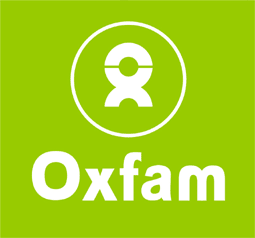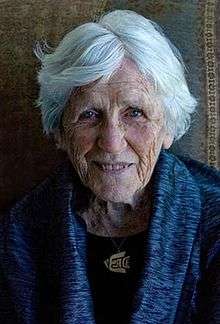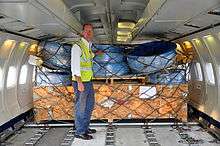Oxfam Canada
 | |
| Abbreviation | OC |
|---|---|
| Formation | 1963 |
| Type | international development organizations based in Canada |
| Legal status | active |
| Purpose | advocate and public voice, educator and network |
| Headquarters | Ottawa |
Region served | Canada |
Official language | English, French |
| Website | Official site |
Oxfam Canada, founded in 1963, is an international development agency based in Canada, and is a registered charity (OXFAM CANADA 129716866RR0001[1]). It has offices throughout Canada and works with partner organizations in Africa, Asia and the Americas. It focuses on the root causes of poverty, injustice and inequality, with the stated intent of creating self-reliant and sustainable communities. Oxfam believes that to end global poverty women's rights must be secured.
History
Oxfam Canada traces its history to 1963, when the British-based Oxford Committee for Famine Relief sought to establish a Canadian branch. Oxfam Canada was independently incorporated in 1966; the first Board of Directors included 21 distinguished Canadians.
In 1967, Oxfam Canada became a key organizer of the successful Miles for Millions Walkathon fundraising walks across the country. In that year, Lester Pearson (then Canadian Prime Minister) led Oxfam's first Miles for Millions March. With its revenues, Oxfam began to provide educational materials to schools and undertake advocacy work in public policy development. This program relaunched in 2009, and ran to 2012, as ‘Oxfam Canada Trailwalker’.[2]
The early 1970s was a critical period of growth as Oxfam began its own programming overseas in Africa, Latin America and the Caribbean, and established a network of staff and volunteers across Canada to support its work.
During this same period, Oxfam Canada began to analyze its role in the development process, moving from a traditional model of charity (one-time grants) towards long-term development programming (working with communities to effect lasting positive change.)
Through the 1970s and '80s, Oxfam Canada sought to address the fundamental, underlying causes of poverty by deeply involving themselves in Central American solidarity and in the international movement against apartheid in South Africa.
This, in turn, led to Oxfam's role as a major advocacy organization in the 1990s, to mobilize public support for changing the policies that perpetuate poverty.
Today, Oxfam Canada works with over 100 partner organizations in developing countries, tackling the root causes of poverty and inequity and helping people to create self-reliant and sustainable communities. In Canada, Oxfam is active in education, policy advocacy and building a constituency of support for its work.
Oxfam Canada is a founding member of Oxfam International, the federation of Oxfams worldwide.
Mission
Oxfam Canada works on trade justice, fair trade, education, debt and aid, livelihoods, health, HIV/AIDS, gender equality, conflict (campaigning for an international arms trade treaty) and natural disasters, democracy and human rights, and climate change.
Oxfam's international programme has three main points of focus: development work, which tries to lift communities out of poverty with long-term, sustainable solutions based on their needs; humanitarian work, assisting those immediately affected by conflict and natural disasters (which often leads in to longer-term development work), especially in the field of water and sanitation; and lobbyist, advocacy and popular campaigning, trying to affect policy decisions on the causes of conflict at local, national, and international levels.
Activities


Oxfam Canada supports long-term development, advocacy and emergency programs in 23 countries around the world. Its core programs are located in the Americas, the Horn of Africa, Southern Africa, and South Asia.
The international development work undertaken by Oxfam Canada emphasizes community-based development. Its programs emphasize self-reliance and are meant to strengthen the community’s ability to support itself in terms of food production, livelihoods and self-governance. Oxfam Canada also works with local and regional partner organizations to promote change in harmful or oppressive customs and legislation, encouraging the participation and agency of marginalized groups in determining the course of their social and political lives.
Oxfam Canada’s humanitarian program involves emergency response to natural and human-caused disasters. Oxfam Canada’s disaster relief programs focus on provision of clean water, effective sanitation, medical support and disease prevention. Oxfam Canada’s emergency programs also support gender-based community development and the creation of livelihoods and incomes through training and support in for those affected by disaster. Domestically, Oxfam Canada’s activities involve fundraising, lobbying and public outreach. The organization attempts to influence the Canadian government, national and international organizations, and the public to prioritize social and humanitarian issues around the world.
Methods
Oxfam Canada’s development programs emphasize the capability of people and communities to create change in their own societies. The organization’s work attempts to build the capacity for self-directed change, governed and directed by community members rather than by external parties like international governments or NGOs. In order to do this, Oxfam Canada works indirectly through local and regional partner organizations who work for social justice in their own areas. Local partners and community members participate in decision-making and execution of work, which emphasizes their own role in the change and development of their region, and provides them with the experience and knowledge necessary to make change happen in their own lives.
Oxfam Canada’s work incorporates a strong consideration of gender relations. The organization’s view is that gender inequity is directly linked to the problems they hope to solve, and that community education and support for women will result in sustainable positive change for all members of a society.
Programs are structured to promote the rights and fair treatment of women, and often address traditional practices or social structures that harm women and restrict community growth and well-being. Women are often the primary leaders and beneficiaries of Oxfam Canada projects, and are encouraged to take leadership roles in their communities.
Fundraising
Oxfam Canada uses a number of different channels to fund its work. Much of its operating budget comes from monetary donations from private and institutional donors. It also receives support from the Canadian government through the international aid department such as CIDA. Oxfam Canada generates funds for its operations through a number of fundraising campaigns in Canada, including its fundraising telethon, the 'Stamp Out Poverty' program which collects and sells postage stamps, its charitable giving catalogue ‘Oxfam Unwrapped’, as well as the Canadian version of ‘Oxfam Trailwalker’, a pledge-based endurance marathon.
OXFAM Canada along with Oxfam-Québec are member agencies of the Humanitarian Coalition. Together with the other partner organizations, the coalition raises money for humanitarian situations around the world.[3]
References
- ↑ http://www.canadahelps.org/CharityProfilePage.aspx?CharityID=s39197, Canada Helps, Charity Profile, Oxfam Canada, Retrieved November 10, 2010.
- ↑ http://www.oxfam.ca/trailwalker/oxfam-trailwalker-canada-2012, Update on Oxfam Canada's Trailwalker Event, Retrieved April 3, 2013.
- ↑ "Humanitarian Coalition - Who we are". The Humanitarian Coalition. Retrieved 17 October 2012.
External links
| Wikimedia Commons has media related to Oxfam Canada. |